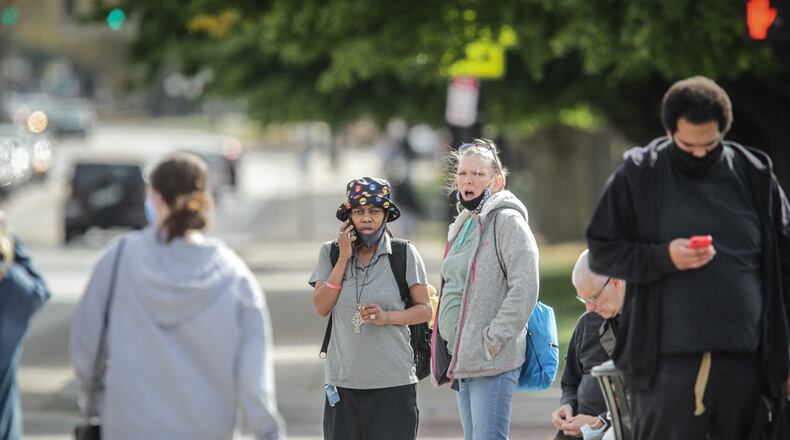Frantom was one of 224 respondents to the survey, which included residents from Montgomery and surrounding counties.
Sixty-nine percent of respondents supported the mandate, including Peter Kilkelly of Dayton.
“Hospitals are overwhelmed and people are dying,” he said. “A mask is a very simple and easy intervention to make that happen less.”
Several people who support the mandate expressed frustration that without one, people weren’t being responsible.
“Electing to not wear (a mask) is the epitome of selfish behavior,” said Rachel Fischer of Dayton, who said she almost died from COVID-19.
More than half of the respondents said they have avoided some businesses because people there don’t wear masks, while 14 percent said they avoided businesses that require them to wear masks. One third of respondents said whether other people wear masks hasn’t affected their decision making.
Opinions were mixed on where they should be worn. More than 70 percent of respondents said they should be worn in stores, bars and restaurants, factories and offices, and church. More than half said any time people are indoors other than their home, or if they are in a car with someone not from their household.
Only 47 percent said they should be worn on the street, and 40 percent said when going through drive-throughs.
Seventy-six percent of respondents said it was an individual’s responsibility to wear masks, and 58 percent said business owners share responsibility as well. Just under half said health departments should be responsible and 39 percent said law enforcement should play a role.
About one-fifth of respondents said they don’t wear masks, masks shouldn’t be worn and mask rules should not be enforced.
Comments from those respondents was largely a mixture of skepticism about the effectiveness of masks, along with concerns their rights are being undermined.
“I don’t believe in them helping,” said Ryan Berry of Franklin Twp. He called the mask mandate a “government overstep.”
The U.S. Centers for Disease Control and prevention says everyone age 2 and older — with limited medical exceptions — should wear a mask in public settings and when they are around people who do not live in their household.
It’s important because COVID-19 spreads mainly from person to person through respiratory droplets that travel into the air when someone coughs, sneezes, talks, shouts or sings, according to the CDC.
“Masks are a simple barrier to help prevent your respiratory droplets from reaching others,” according to the CDC. “Studies show that masks reduce the spray of droplets when worn over the nose and mouth.”
About the Author

